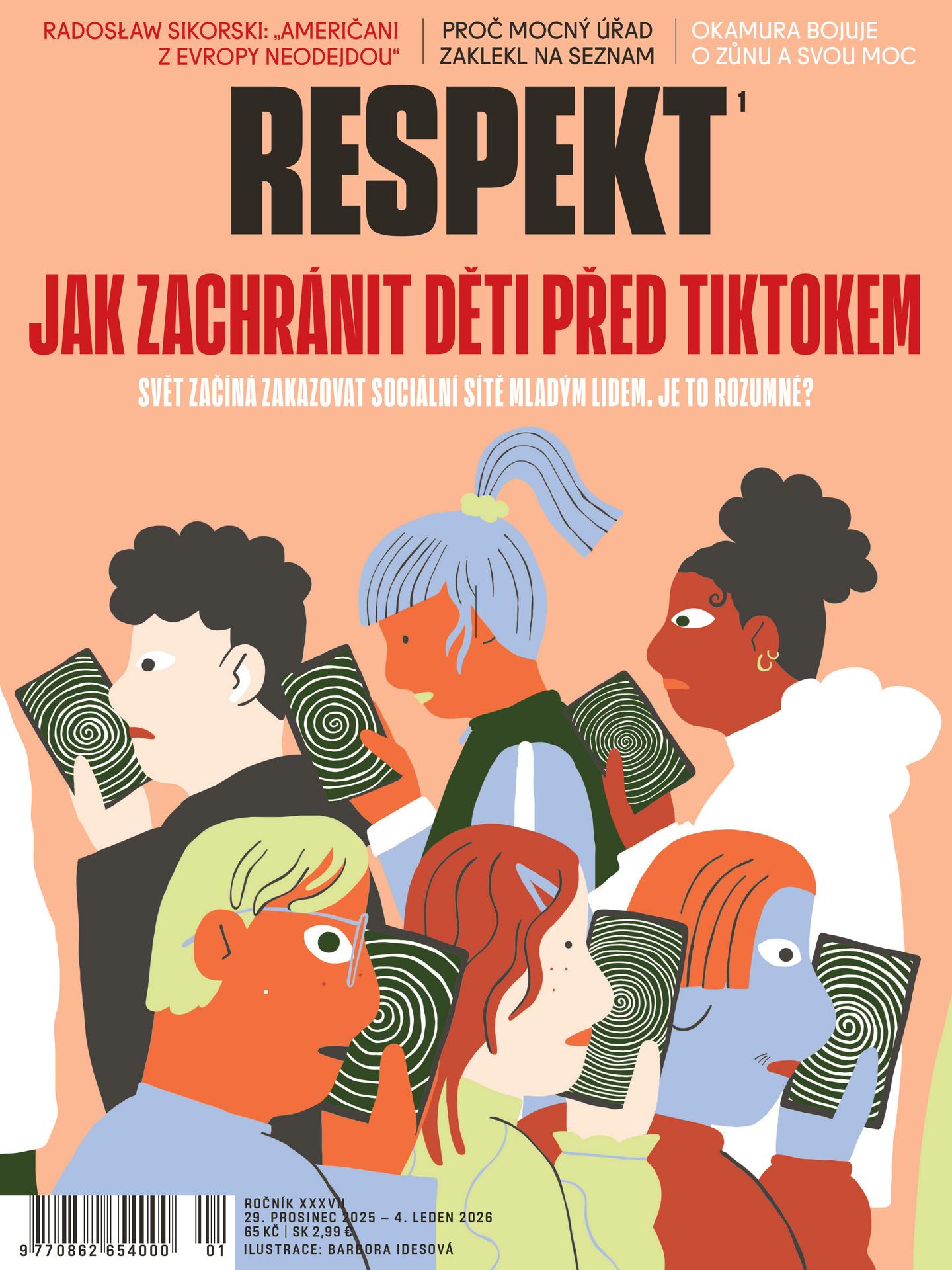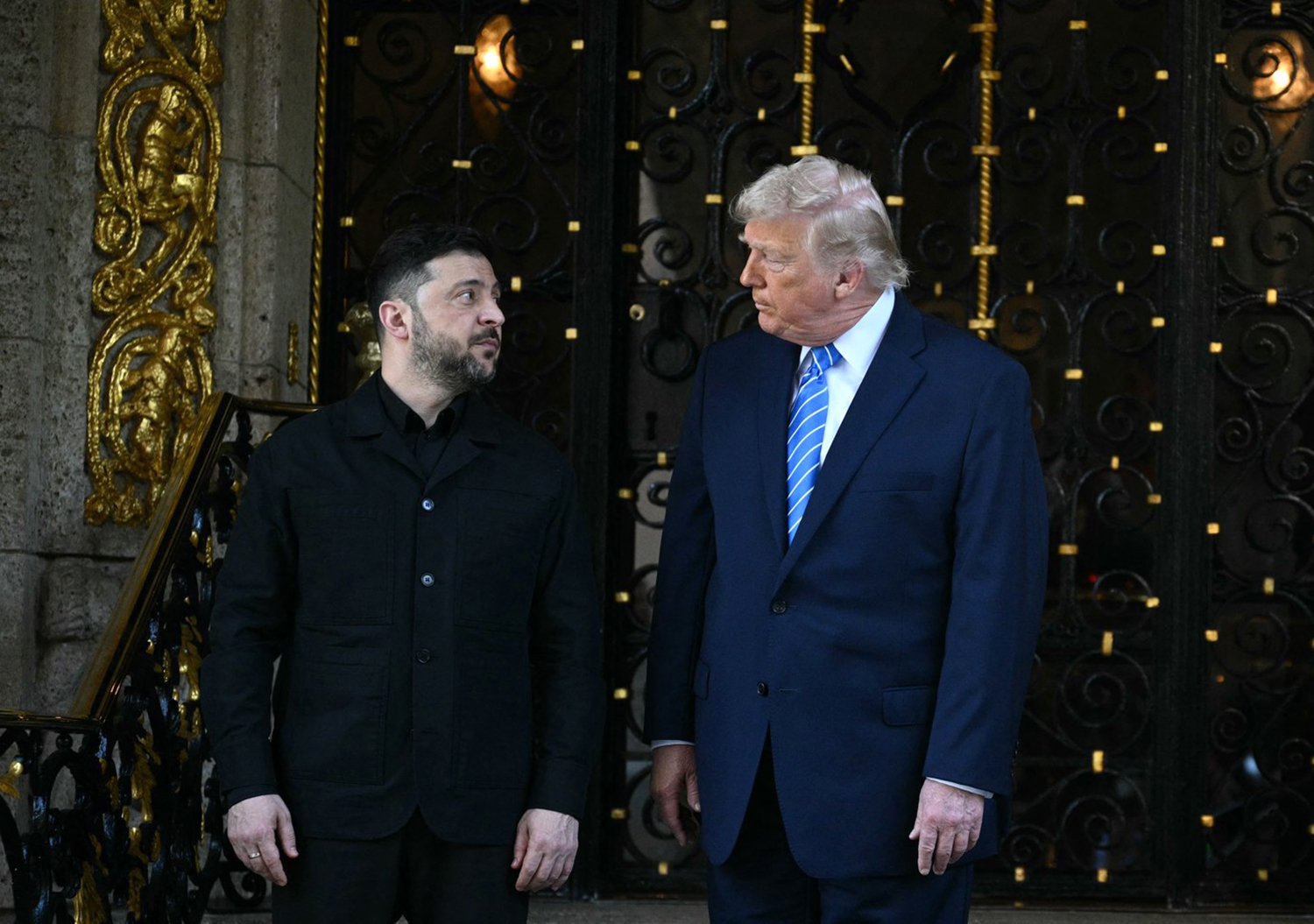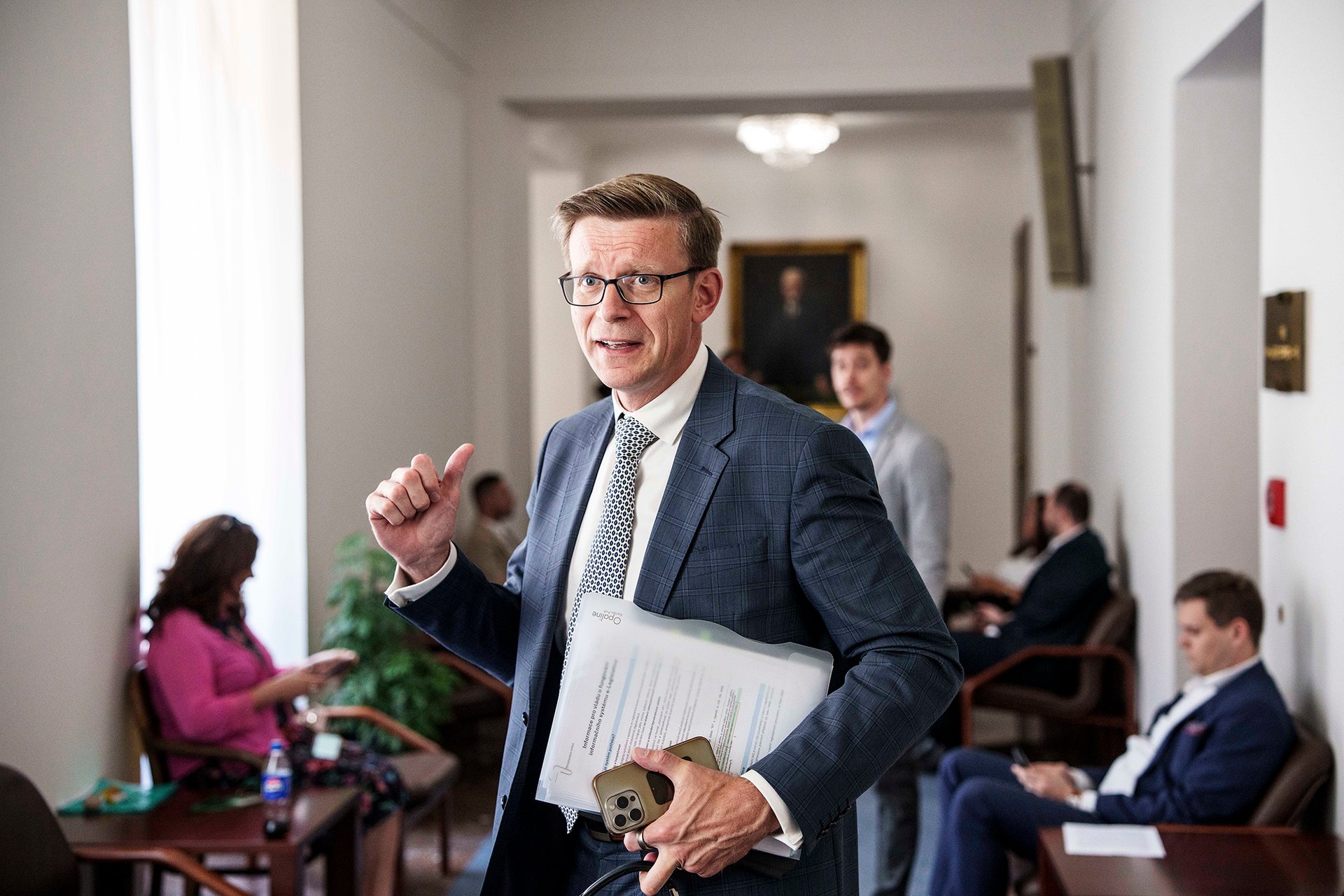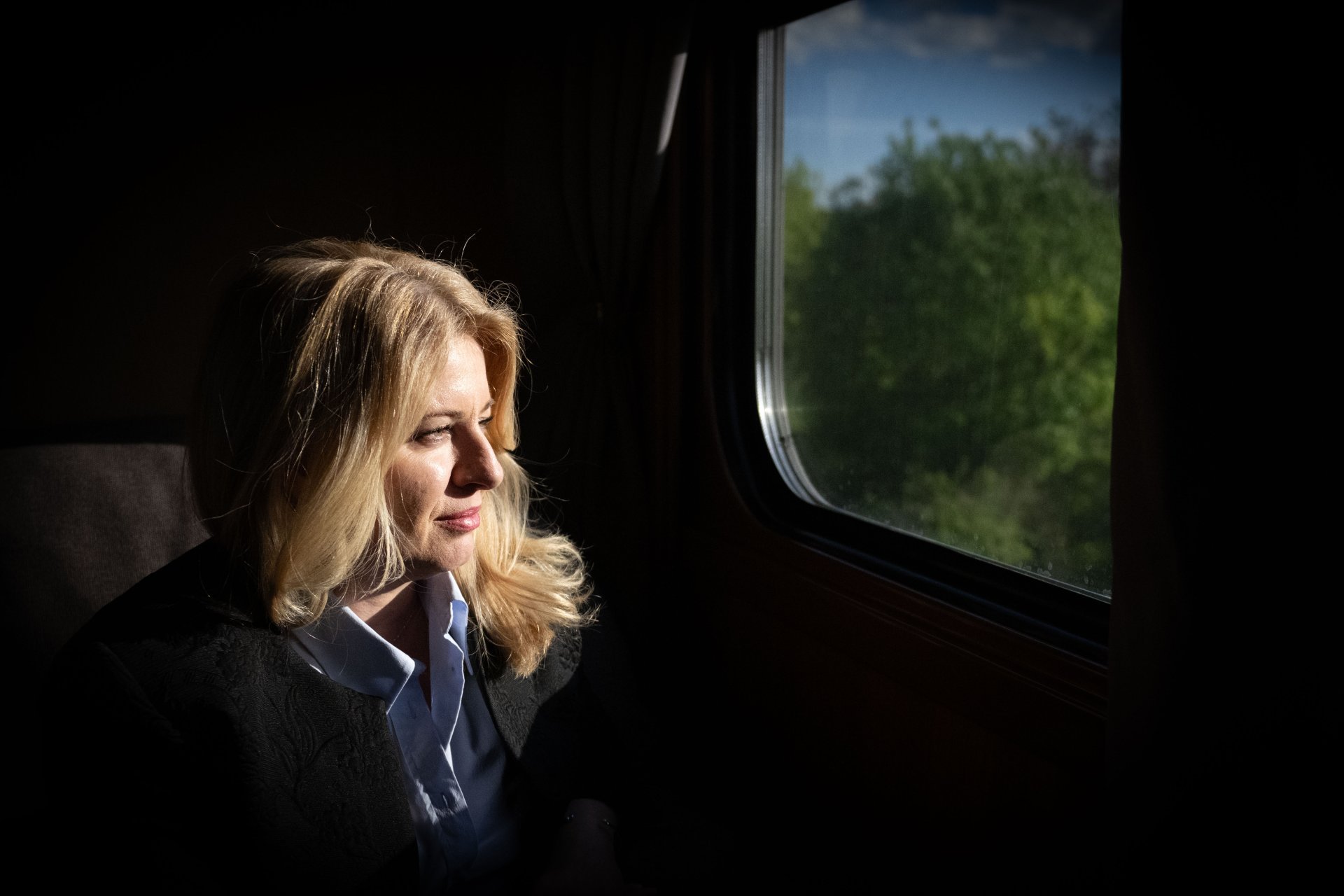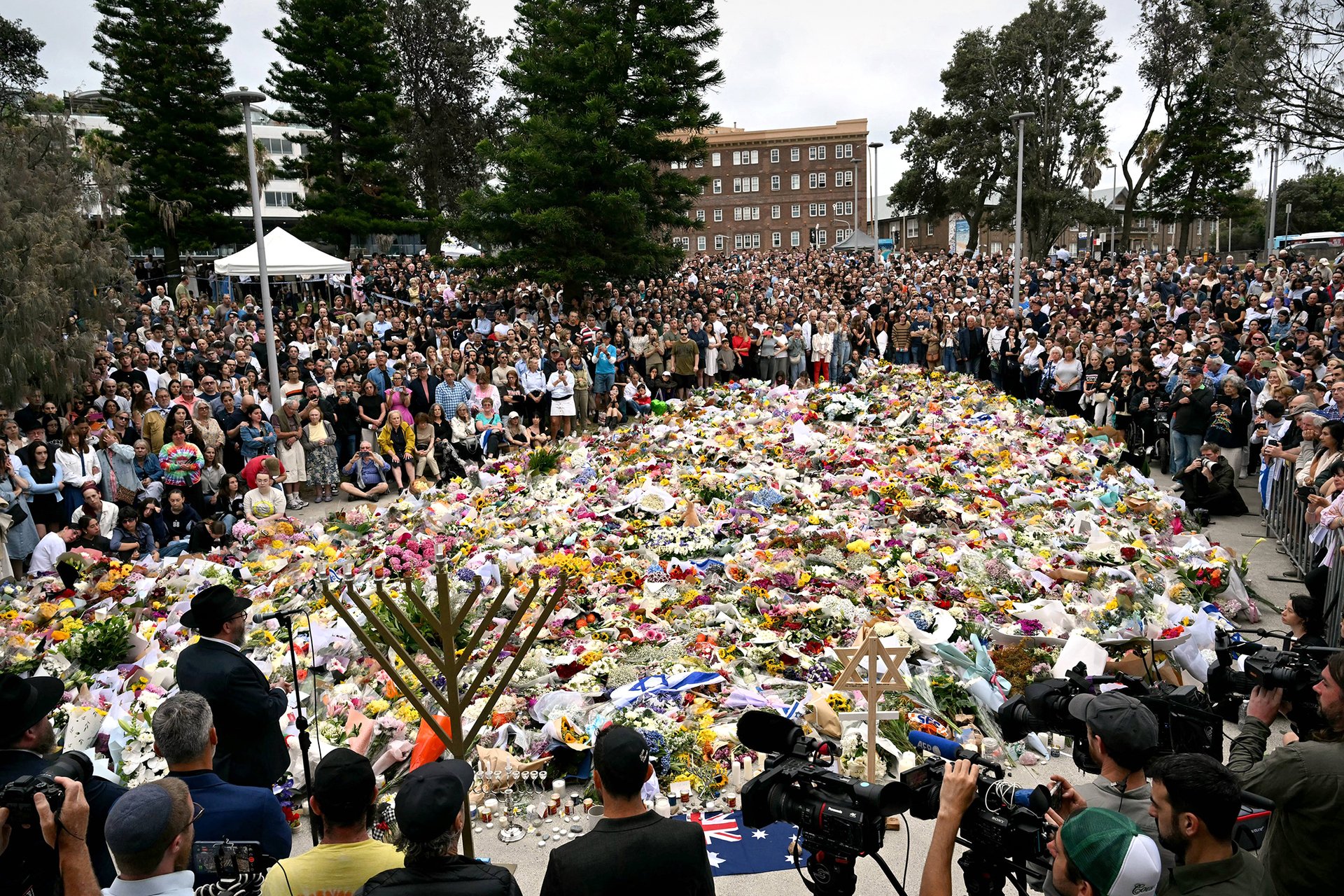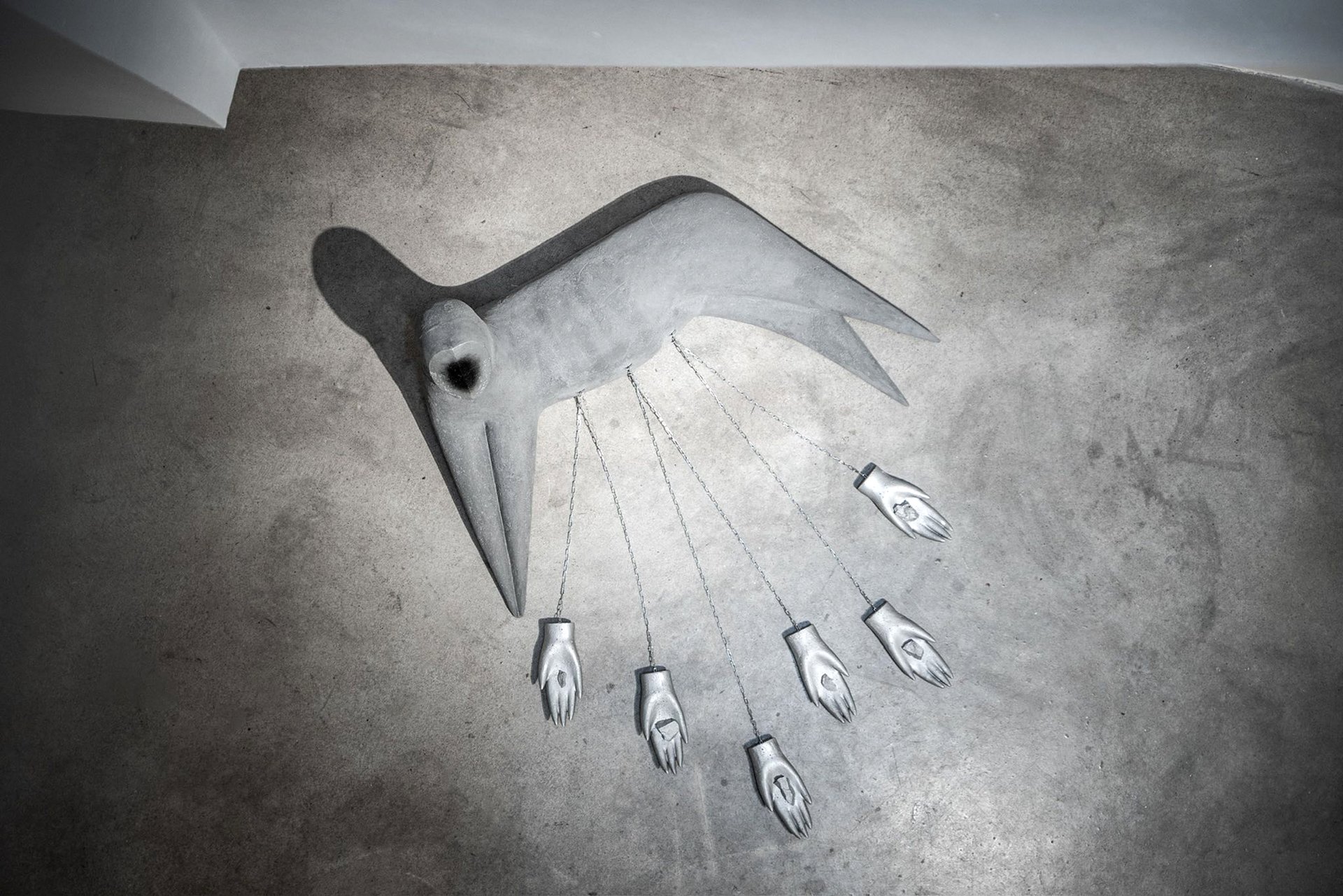Investigative reporter from The New Yorker: All we have is our reputation
Interview with Adam Entous about American journalism, Twitter and why almost all politicians were lying in 2017
“I'm still doing the same thing, but the current president has identified the mainstream media as his enemy. It is more and more important for us from the mainstream newspapers to be beyond the reproach, to be perfect, so that Trump`s allegations will not convince people that we are fake news,” says Adam Entous from The New Yorker, who was a Pulitzer Prize finalist in two categories in 2017.
The former editor-in-chief of The Guardian Allan Rusbridger writes in his book The Breaking News that the world where journalists have the monopoly on information completely disappeared. You have worked as a journalist for more than 20 years. Do you have the same feeling?
I would not say it has completely disappeared because there is a relatively small group of people who are still doing reporting and doing their job fairly. You certainly have a lot more platforms that are producing some content. But the number of organisations that are actually doing investigative journalism is smaller. In fact, newspapers that used to be strong, like the Chicago Tribune, used to have investigative units and when the newspaper business shrank in the US, those were usually the first that got cut.


Is something else being created instead?
Yes, there is a proliferation of platforms, online platforms, there is often propaganda. They are not producing investigative journalism and there are few investigative journalists who are left. Increasingly there are places outside of that space, like Bellingcat that obviously never existed before and who are now competition for the Washington Post investigative teams. But these other sites that have been created are largely just noisy.
What do you mean by “propaganda”?
They are focusing on clicks and also serving an audience, their base, and usually it is connected to a political position. In the US you saw the rise of websites like Breitbart which catered to a right wing audience, or Daily Caller, another website like that, Federalist is also prominent in the Trump era. Because Donald Trump is the president and his administration needs the media to spread the messages and narratives that they felt they needed to spread without question in those media sites. In the mainstream media information were not just taken and spread, they were subjected to scrutiny. But I don’t see them as competition for actual information. There is so much information that is out there right now, it is spread over so many sites, compared to what it was in the past. And there has not been an increase in actual journalism that tries to present accurate and investigate stories. In the end, you have more stories but less stories that matter.
So, this is the change?
Yes. Allan Rusbridger is right when he says that we have had more control over information in the past but today there is no equality of information, there is now a lot more low-quality information. And the amount of high quality information is about the same, and it is in the same hands as in the past with the addition of a few publications like Belingcat that are doing what newspapers used to try to do.
You started in the 90s at the international news organization Reuters. How did your beginning look like?
I was working in Reuters in New York and my job was to take a press release that was issued by a company and write within 30 seconds a headline and a one paragraph, two paragraph cover to the headline. Basically write a lead and then put a quote that backs up the lead. That’s what I did all day long for the first two years at Reuters. It is a good exercise in speed and accuracy and it wasn’t until you moved out of those jobs that you could interview people and try to tell stories.
How did your job look like exactly back then?
The press releases would arrive on a fax machine and these were the old fax machines where the pages were connected with ribbons. So we would hear a fax coming in and we would go and wait by the machine and as soon as the news release would finish printing, we would rip it off and run back to our desks as fast as we could, and start writing the headline and the covers. At the end of every week or day, they would get a report when your headline came out and compare it to the competition. And they would have it to a fraction of a second. So you could be beaten by Bloomberg by one tenth of a second and that would be considered a failure on your part for not being first.
You are now at The New Yorker but you were also in The Washington Post or The Wall Street Journal. In which way is The New Yorker different from the others?
The New Yorker is the oldest school of long form journalism. So it is very different from everywhere else I ever worked. There are times when you are working on similarly long stories, particularly when I was at the WSJ, there I was doing more long form narrative investigative pieces. The fundamentals are the same – get information and make sure it is accurate and then write it in a clear way. That does not change, the difference is that at the New Yorker I need to get so much information for each piece, for each article it feels like investigating a book or putting together a book, it is exhausting the amount of information that is required to do a good story.
So, how long do you work on one article?
Usually it is about 3 to 4 months. It depends on the topic and how people are willing to talk to me. I write about intelligence and national security and it is usually sensitive and it is hard to get a lot of information. When I was at a newspaper I could write a story around a little piece of information. Now I have to get dozens of new facts where if I was working for a newspaper I would have 25 stories. In this case I have to collect all these facts and save them for the magazine piece. Each word is a hard word at the New Yorker because you are gathering as much exclusive information as possible and you are hoping no one will get it before you go to print.
How does your typical work day look like?
It depends on the story, depends on how easy or hard it is to get information. Typically, I will have one or two face to face meetings a day and maybe a couple of phone calls. And then I spend a lot of time listening to my tape recorder, to listen for the way people talk about the topics because you learn a lot about the topic in the specific wording. When people are trying to talk around classified information and they know things that are classified, they talk in a certain way to try to avoid telling you the secret. And if you listen very carefully, sometimes you can figure out what the secret is based on the way they talk around it.
Could you give me an example?
When the CIA was conducting drone strikes in Pakistan, largely targeting Al-Qaeda and other groups connected to it, they had a series of words that they would use that were the non-classified words, you just had to know what they were. Counter terrorism operation meant a drone strike by the CIA. You could interview somebody, and you use their words and say “was that a counter terrorism operation?” and if the answer was yes, then it was a CIA drone strike. They would come up with euphemisms and you have to learn the euphemisms in each subject in order to have the conversation. And suddenly, once you learn all the terms, you can interview people, use the euphemisms without actually talking about the classified programme and as long as you understand what it means you know how you can write your story. I also listen to it because there are things that you miss when you are having your conversation the first time but when you listen to it a second time and if you’re interviewing somebody who is very smart, you usually can pick up things that you didn’t hear the first time.
What is the reader’s feedback on long pieces?
Usually the feedback is very positive, everything is complicated, the closer you look at a subject you learn it is not black and white and it is very difficult to define it by a headline. Most journalism is doing a disservice to the subject because they write short stories, they do not explain the context, and do not explain the nuance of all the things that are involved in a person’s life or in an event. When you write for the New Yorker you have the space to get all the context. If you write something in the Washington Post or Times you have to put a headline that grabs your attention. And you have to have a lead that tells the reader what is important. At the New Yorker I can just write it as a truthful story. You might not find the information that would be the lead at the Times until you get to the proper place in time and space. And so in some ways the long form journalism is the most honest form of journalism. You are not trying to force an interpretation or a revelation on a person and you are not shaking them by the collar and saying “this is important”. In a New Yorker piece, you can put it in a proper context and you do not have to exaggerate, you do not have to scream with a headline or lead paragraph. You do not have to make it sound more important that it is. When we are covering those daily events we are skewing the importance of those things. To be able to lay it out that captures what is going on all around and put it in its proper place, I feel like it is a more truthful way of telling a story.
But what would you say to a journalist who does not have time and room to write stories of more than twenty pages as the New Yorker does but he still wants to write about issues in context?
It does not have to be twenty pages but it is important to think about the context. For example, ask yourself the question if your headline or lead is fair. In newspapers you have to often boil things down to a single point. And often the oversimplification does not really tell the reader what they actually need to know. I am spoiled that I could write these long stories and I know a lot of people cannot do that. But from having been in newspaper business for long time, I know what you have to do with a lead or a headline and I know that while they might be technically accurate but by the process you are trying basically say “this is important”. And very often it is not. But by laying it out in context, in a longer form way, you are no longer forcing the reader to see things in certain – your - way. Readers come to the data point after understanding the context.
Have you ever in your career experienced the situation when you are forced to simplify your stories or be catchier?
Yes, for sure. And it is the matter of resistance to the pressure from the editors who often want something more controversial or confrontational. I get that where I am now and I certainly got it when I was at the newspapers. It is just the matter of saying to the editors that I do not think that it is fair or accurate. But I have not had an editor that said they didn’t care and published it anyway.
And do you think this is the common editor`s approach in the US media? That they do not force you to the publishing articles about them you feel nervous?
I think I have been very lucky. I have worked at places where I have had very good editors who are from the `old school` that is not about the clicks and they still approach journalism less as a business and more as a profession. One of the things which is the saddest about the current state of journalism is, in addition to what we said earlier about the proliferation of organisations that cater to specific audiences, is that we lost almost all amazing editors. The dynamic in the newspaper business with the decline of the people that subscribe to print newspapers – particularly outside of the major ones like Wall Street Journal or New York Times – when they need to get rid of people, they would often do buy-outs that were available to the most senior editors so newspapers have lost amazing professional editors. At many of the publication where I have worked there are the last of them. And I have no idea where the next generation of good editors is going to come from. Among the people that are my age I have not really encountered lot of editors that can do what those old ones can do that had a sort of magic touch and ethical standards. I am not sure if the next generation of editors will be as powerful and capable as their predecessors. That is connected to high-quality journalism.
The New Yorker is unique also because of its fact-checking team. How does the fact-checking work?
There is a group of people, probably about fifteen. They tend to be younger, usually recently out of universities and they are taught and trained in our system by a senior fact-checker who is running that desk for decades. The system is that they basically approach every single fact in a story whether it is the day of week, to the spelling of person`s name or to the contents of what they are saying. Usually there are two fact-checkers on each story, sometimes three. They call me up and say to me that they want me to write names and numbers of every person that I spoke to for the story. Then they go through my draft and at the end of every sentence I have to write where I got the information and the phone number or email address of my source. And than they basically create a spreadsheet with all facts from the story and talk to every single person to fact-check my story. After fact-checking, they let me know about the proposed changes they would like to make and we talk about any doubts that are left. In the end, when we are done, we have something called a closing meeting with. You as the reporter, fact-checkers, a grammarian and the editor all sit together, have a print-out of my story and go through each page again. We are discussing the story and our feelings about it once again. Everybody is sort of equal in the process. The reporter has the final say but the fact-checkers are very powerful. So, after usually two or three weeks of fact-checking, you can go to bed that night knowing that when the story comes out, there is absolutely no way that anybody could do any better than that product.
What happens when your source says to them another quote or does not want to verify the fact that you used in the story?
Yes, there are some cases when people want to take back what they said. Then I have an opportunity to agree to the change or disagree and keep the original quote. But lot of the times, when people do an interview for the first time, they could make a mistake or may forget some details. And when they talk to the fact-checker, something could come to their mind. I found out that this process is the most beautiful thing because you always get a richer story. People remember new things and it is like a follow-up interview and that makes my stories better.
What are the responses on this fact-checking from your sources?
Surprisingly, they love it. Most of them. Because they feel that they have nothing to worry about and they know what will be in the piece. And also, for me it is such an amazing tool because I write stories which come together from 80 to 100 sources. So, it is impossible for me to call all of them, some of them are not from the United States or English native speakers. That is why we have fact-checkers who speak for example Czech, Chinese or Russian.
As you said, you write investigative articles about issues connected to national security and intelligence. And you spent quite a long time investigating Russian influence on the presidential election. Do you feel more pressure on you and your work since?
Back in old days, about five years ago, you wrote story and if you made a mistake, you would be criticized and forced to make a correction. But today if you make a mistake – or even if you don`t make a mistake – there are armies of critics on social media who will come after you. It is so much more politicized. And even though I try my best to be neutral, people will - from all sides - come after me when I write anything. In some ways, it is not a bad thing because it makes me work much harder and making sure that I am correct and approaching things in a right way. But it is extremely stressful knowing no matter how careful I am there is going to be these attacks. For journalists the stakes are nowadays so much higher especially because of the fast news cycle and attacks from the president of the United States and others. We used to introduce ourselves to people and most people did not react in a negative way. Now, you talk to somebody and the person tells you in your face without hesitation `you are fake news and I do not trust you`.
So, what is different about journalism in Trump era?
I'm still doing the same thing, but the current president has identified the mainstream media as his enemy. I do not remember such confrontations between journalists and the White House, and I covered the White House after the US invasion of Iraq in 2003 when George Bush and Dick Cheney were there. I think that we are a lot more careful compared to the way we used to be. It is more and more important for us from the mainstream newspapers to be beyond the reproach, to be perfect so that Trump`s allegations will not convince people that we are fake news. But I think that you just have to deal with that and go on doing your job. No matter who is or is not our current president.
You broke two explosive stories —that President Trump asked two of the nation’s top intelligence officials to help him push back against an FBI investigation into possible coordination between his campaign and the Russian government, and, that House Majority Leader Kevin McCarthy said in a private Capitol Hill conversation captured on audio tape that president Trump is on Vladimir Putin’s payroll. What was the response from the White house?
There was basically no reaction. They wanted to figure out who recorded the conversation. But there is nothing that they could really say. There is one interesting story behind the audio tape. I initially didn`t tell them that I had the audio tape. When I went to congressional leaders, I told them you had a meeting and this is what was said in the meeting. Originally, they told me this story is not true. And then I said that I had the audio tape of the meeting. After that, they said to me that they want to change their story because it was all a joke, were just joking.
What did you do?
I said no and wrote that they originally denied this information and then they said it was a joke. The lesson for me is do not tell sources initially how you know something and always have an evidence: a tape or piece of paper. Let them lie and then show them how you know they are lying. The same scenario happened over and over again from 2017, it was as a bad joke. When me and my colleagues would get some tape or document and seek confirmation or a comment on something from the officials, they would initially say it is not true. But always when we said that we have the tape, email or document, they tried to downplay it in another way. Everybody was just lying. Throughout 2017, stories were much more about the lying than about anything else. And we were just wondering why they are lying about everything. But we never understood what the reason for that was.
Why is so important to catch politicians in the lie?
I think it is important because hopefully they will learn that they will be called out for the lies. It also makes them scared to lie the next time. They will not be sure if we do not have a tape again. It is just the arrogance which I found really annoying and disturbing. In the past, journalists and the people they wrote about trusted each other more. I could come to the spokesperson and say, "Look, I'm working on this and I want to be transparent`. But now it is more work to find out on the spot they want to fool you.
Because of your stories about Donald Trump, Project Veritas was trying to compromise you. They video-taped you in bar and asked you a lot of questions about your opinions on the current American president and then they published it on the internet. Who is this group and what happened?
Project Veritas is group that was set up to embarrass and compromise mainstream reporters who are perceived as being investigating the President and as a threat to him or his agenda. In general, they are trying to be fake sources. In 2017 we were very aggressive on the Trump story. I had done a story in April 2017 about a private mercenary-for-hire Erik Prince, the founder of Blackwater security and how he had - on behalf of Donald Trump before his inauguration - participated in the secret meeting with a representative of Vladimir Putin in Seychelles. And Erik Prince is a funder for Project Veritas. We spotted him few times near our office at the Washington Post, and we were very suspicious. And after that people from Project Veritas started showing up at our drinks and company events. We believe that they had to have access to company emails. At one of those events, one man started to speak to me. He had a small camera and said to me that they are making a documentary about the Washington Post and they are interested in talking to journalists from Post about Donald Trump. But I was suspicious because of nature of their questions, they were so leading. So I answered all questions as the same way as I would answer them to my editors, showing no bias and nothing controversial. After I left, they tried to reach me through one of my colleagues to arrange a follow-up meeting but I ignored it because I knew something was weird. Evidently they found out that they had not gotten what they wanted, they wanted me to me to say things like “Trump is terrible” and be biased but I did not do it. Then they published video of me answering their questions but as I said I would answer their questions the same way again because they did not get anything from me. So this is the environment where we are in today. We have to be more and more suspicious about people that come to us and claim they have some information because they might be trying to set us up. It is crazy. That`s the game they play.
Does it happen often to mainstream media in US?
I do not know how often. But that same group had later a year-long operation against the Washington Post. They created a fake person who claimed to be raped by the Republican Roy Moore and went to the Washington Post to try to get them to write her fake story. The woman was trying to persuade the Washington Post to use her story, so then she could say “the Washington Post wrote a fake story” in order to embarrass and discredit all the Post`s reporting on Moore.
A lot of readers no longer believe the mainstream media because there are alternative sites that keep repeating that those journalists are lying to them. What should proper journalists do to explain to people that they are trying to describe the real state of the world?
It is a hard question. Propaganda and attacks on mainstream media have done a lot of damage to our reputation. But I think we also contributed and we make the job of people trying to discredit mainstream media easier. At different publications like The New York Times and Washington Post there are news sections and opinion sections and it is not as well separated as it should be. It is increasingly hard to tell the difference between the opinion blogs and the news site. Yes, these blogs and opinion columns have good online traffic and there is a financial motivation to produce that but some ways I feel that those stories end up undermining the seriousness of the other parts of newspapers which are trying to conduct the actual investigation and news coverage in a straight way.
And is it only your opinion among the American journalists? Or is there any discussion about side-lining the opinion section?
I do not see any discussion about it. There is a realization that these emotional opinion articles or commentaries that people are interested in get more clicks than news stories. That is why we see their proliferation and even dominance. But it confuses readers, they do not know what is an opinion and what is fact anymore. I have not been watching BBC as religiously as I used to watch BBC but what I get when I watched BBC or PBS in the United States is a lot of reporting and very little opinion. I wish that was the norm.
What you are saying is also connected to your approach to the social media. What`s your strategy there?
My strategy is that I do not tweet at all except for the details of my stories or somebody else`s stories which I consider interesting. I have almost no personality on Twitter. Because do not want to people to research my posts in order to put me in one “camp” or another. As a reporter I need to speak to everyone.
Is that common strategy of journalists in US?
No. Even though I might personally think that something that Donald Trump did was outrageous I try to reserve my opinion to myself and just try to generate more facts that I could put in the next story. Because my work is about the facts in my story, not about the opinions of me or my colleague. But my colleagues decided they would just go their frustration and reveal their agenda and become politicized through their Twitter. And most of them also decided that it is more important to have audience than to have neutrality. I have seen almost everyone is now moving the opposite direction and becoming more opinionated. The wanted to increase their audience and be influencers. They may really hate Donald Trump and they feel that by screaming about it on Twitter can get them a larger audience or a contract with CNN or MSNBC so they can say the same opinions on TV, or a book deal down the road. But I think this is not journalism.
Which impacts on journalistic profession do you see?
Reader could get more suspicious of their reporting and begin to think that their reporting is biased, they have an agenda. And lot of readers feel the same way. For me it is important that my readers know I do not have any agenda or at least that they are not able to not tell that I have an agenda. All we have is our reputation. Of course, we also have the reputation of your organization but it is your personal reputation as journalist that gets you the information. Now everyone could put journalists in buckets and say `hey, you are from the anti-Trump bucket, I don`t want to talk to you`. For me by revealing their agenda they undermine their credibility as independent journalists. But because of their expression of opinions they no longer have the ability to talk to important people that are in government and are not able to do what is the substance of their work: to expose problems connected to American officials whether they are Democrats or Republicans.
Pokud jste v článku našli chybu, napište nám prosím na [email protected].

